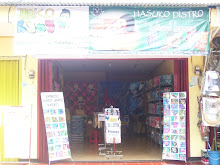by Laurie Boucke
Copyright © 2003. Used with permission.
Infant potty training is about a gentle, natural and loving method of communication and toilet learning. In most societies where Attachment Parenting has been practiced for centuries, this method of infant toileting is used. Because of this, I consider it to be another element of AP and refer to it as the sixth Baby B - after Dr. Sears' 5 Baby B's:
- Breastfeeding (Sears)
- Bonding (Sears)
- Babywearing (Sears)
- Bed-sharing (Sears)
- Belief in Baby’s Cries (Sears)
- Bladder/Bowel Communication & Learning (Boucke)
In many parts of Asia and Africa, mothers start pottying babies around 1-3 months old and finish before their babies walk. At that time, babies still need some assistance since they can't dress or walk. Mothers read and respond to their baby's signals - such as elimination body language, timing, patterns (in relation to feeding and waking) and vocalizations - and in this way, their babies stay clean and dry. Many mothers also rely on intuition. The reason this is possible is that there is a window of learning (sensitive period) open from birth until the age of 5-6 months.
On the medical front, recent European research has found that the current Western views on bladder and bowel control are flawed and that it is often better to start earlier than to delay. Unfortunately, the Western world has been indoctrinated to reject any form of early toilet learning. Even when our own parents or grandparents tell us that they had all of their children potty trained by 12-18 months, we assume they are mistaken. Our doubts stem from "medlore" - maturational readiness theories which are based on opinion and commercialism rather than scientific proof. By changing our attitude from skepticism to recognizing our babies' amazing abilities, we open new doors.
I refer to this method as "infant potty training" (IPT) or "infant pottying." Other terms include "elimination communication," "trickle treat" (the title of my first book on this topic, now out of print) and "natural infant hygiene."
A normal, healthy infant is aware of the bodily function of elimination and can learn to respond to it from infancy. By using diapers, we condition and thereby train baby to go in them. Later the child must unlearn this training. This can be confusing and a traumatic experience for the child.
An infant does his best to communicate his awareness to you, but if you don't listen, he will stop communicating and gradually lose touch with the elimination functions. He will be conditioned not to care and learn that you want him to use his diaper as a toilet.
One of the most common questions I'm asked is, "Is it too late to start if my baby is older than 5-6 months?" In one sense, it is never too late to start, but you will probably need to used a modified version of IPT for babies over 6 months. Many parents have started at 6, 9, even 12 months and have done okay by making some modifications. It is usually harder to start with a mobile baby who has been "trained" to go in a diaper or who wears disposables and does not associate the feeling of wetness with elimination. If this method resonates, if you feel it is right for you and your baby, and if your healthy baby takes to it, it is certainly worth an honest try! As long as there are no major upsets in your family life or health, you are likely to be open and receptive to your baby's elimination communication.
Another factor to consider is that there is not a fixed cutoff age at which babies lose their connection with the elimination functions. Each child is unique and develops in his own manner. There are parents who have learned about IPT or who have started other methods of toilet learning when their babies were 6-18 months, 2 years or even older, and who have been delighted to find that their little ones were ready, receptive and communicative about toileting at these ages. In short, the window of learning seems to remain open or accessible for some older babies. No matter what age your baby is when you first learn about IPT, I usually recommend that parents give this gentle and nurturing method a try for a few weeks, then assess whether you want to continue.

